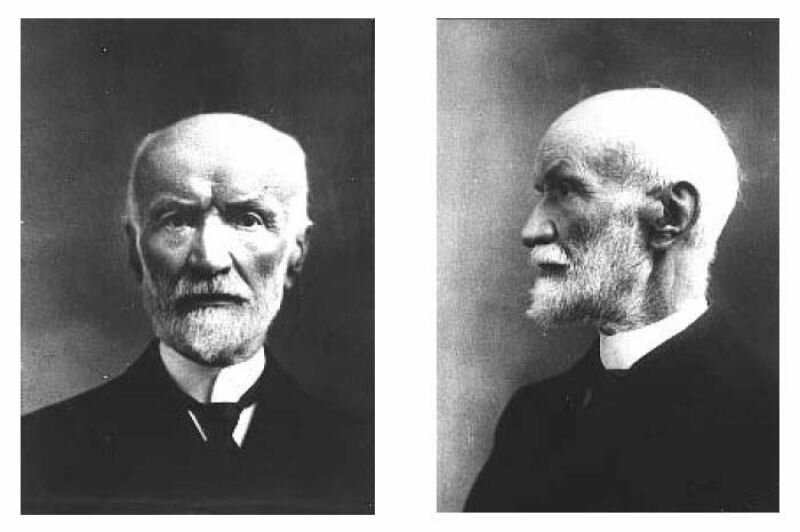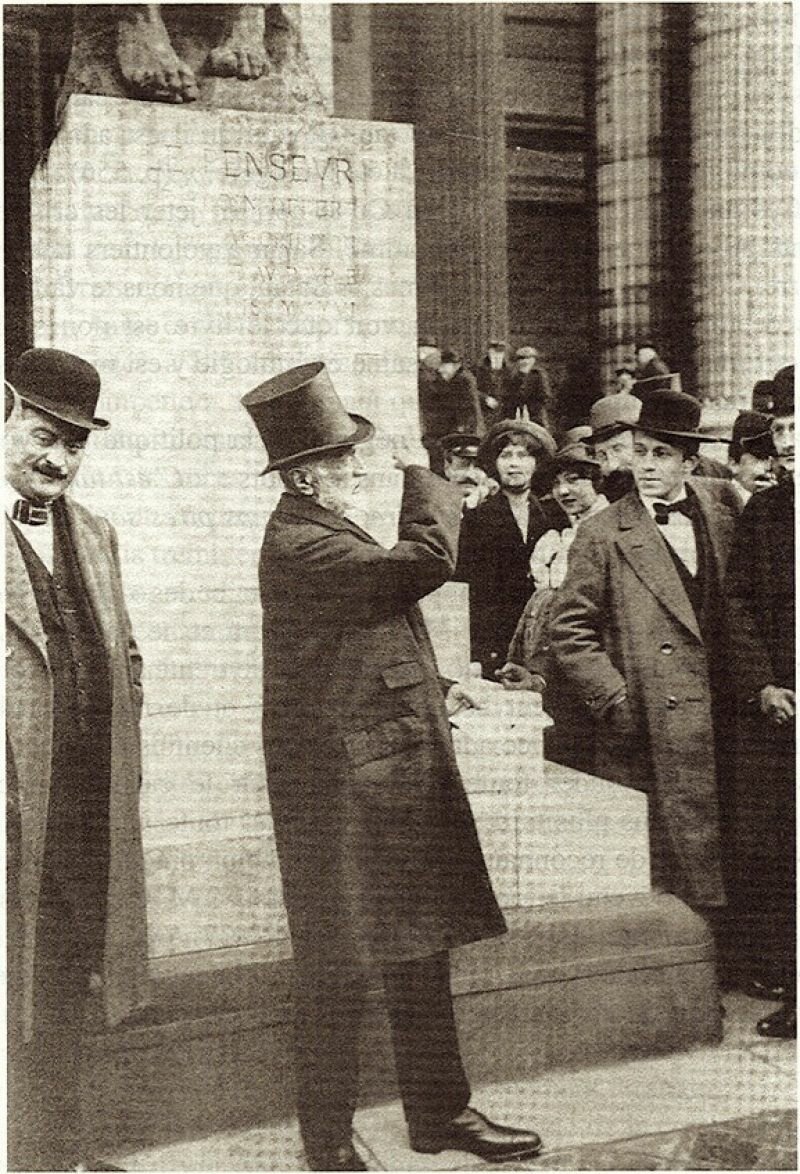

On Sunday, April 13 1913 Brisset arrives in Paris, shortly after his coronation as the Prince of Thinkers for his discovery on linguistic grounds that man descends from the frog. In Hôtel des Sociétés Savants, Bisset delivers a public lecture named The True Doctrine. In the small hall, more than eight hundred spectators struggle to fit in as the Prince of Thinkers unfolds his great metaphysical theory on the ‘batraccic’ descent of man.
Brisset relates how he spent evening after evening sitting by the swamps of Saint-Serge to learn the language of the frogs:

Gradually, Bisset understood that man came to being when the frog started to develop visible sexual characteristics. This was coupled with the development of language.
‘The emergence of gender in this ancestor was the new development which changed the sound of the frog, and gave it its already perfect accuracy. In that moment the current words arose, and have not changed ever since.’
Brisset proves his theorem with a series of deductions:
'Quel sexe est que j’ai?/What sex do I have? Que excès que ça!/What excess! Qu’est-ce?/What is it? que sexe a? Qu’ai? que sexe a? Kékséksa? […] Qu’est-ce que c’est que ça? These analyses by themselves suffice to show, with the infallible Law that leads us in our efforts, that our most impertinent question was born in creatures who developed sex organs and knew nothing of this exe-crescence, of this exe-tension.’


Unfortunately, this wealth is only accessible to French speakers. Brisset says in this respect that his work is untranslatable, which is peculiar for somebody who searches for the common primordial language of man. However, every language can be dissected according to the Law, and so different aspects of our past will continue to surface.
‘The one who said for the first time: Je m’examinai/ I examine myself, in fact said: J’ai mon sexe à la main/ I have my sex in my hand’. Study of the sexual organ (examen du sexe) is also the first thing that occurs as one is born into the world naked.
And the hall responds to Brisset’s elucidations with spontaneous croaking.